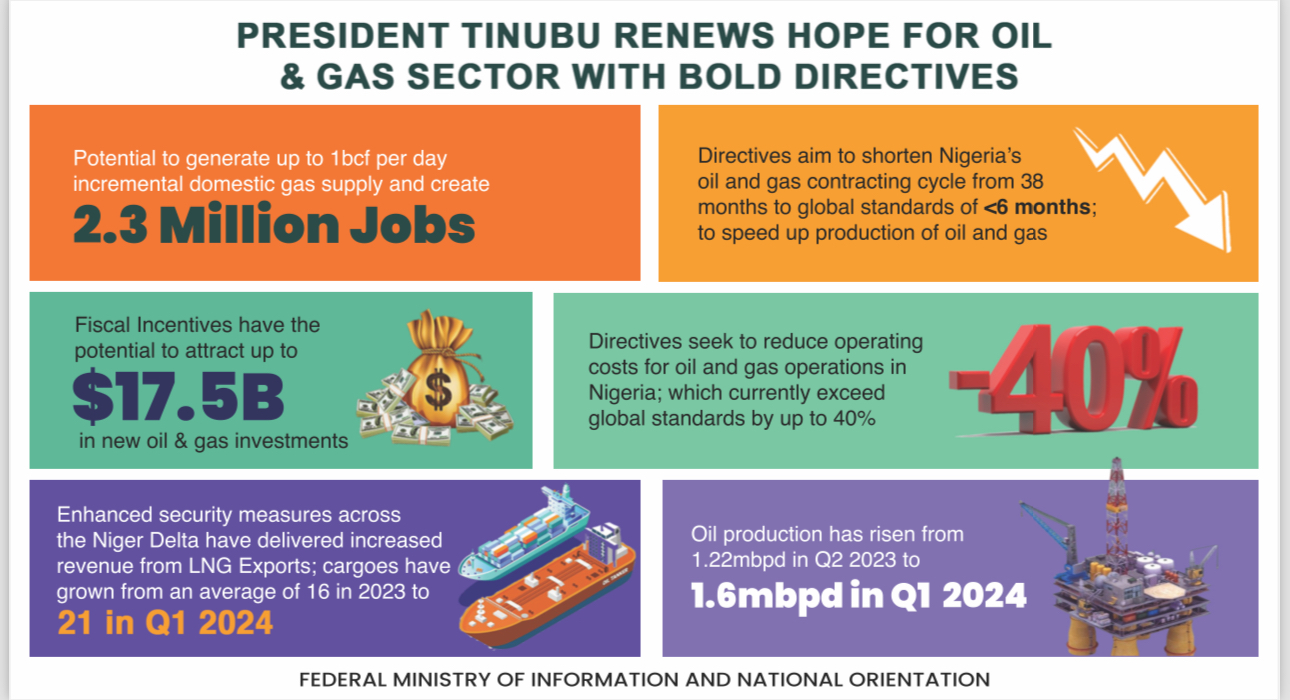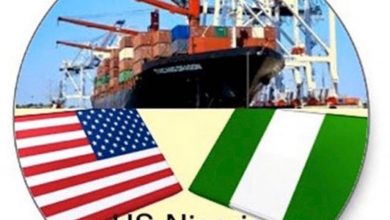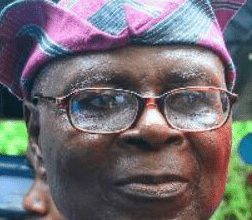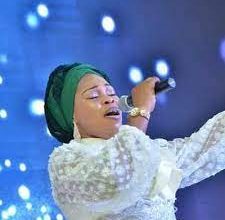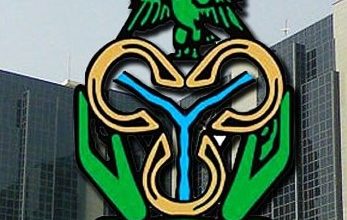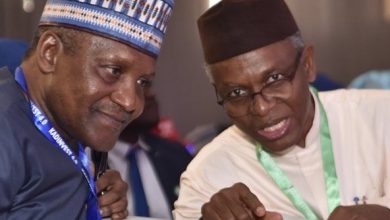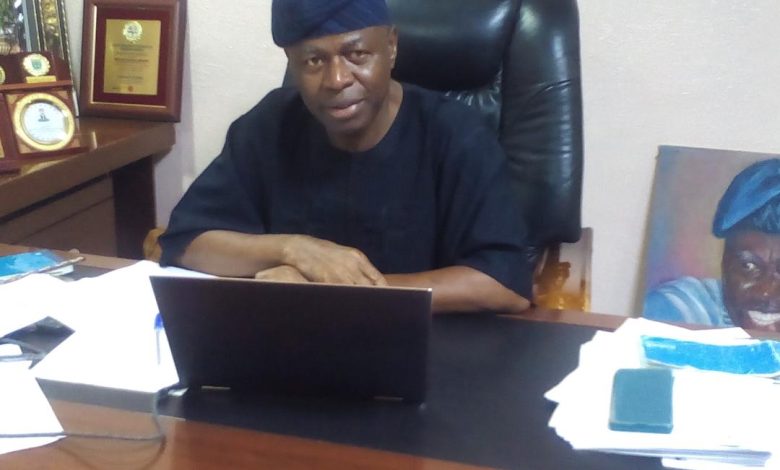
For the records: Being paper delivered by Owolabi Oladejo @Bowen University, Iwo, Osun State. 2023
Imperative of Nigeria’s Rebirth: The pathway to peace and progress
Introduction
Nigeria, often hailed as the “Giant of Africa,” stands at a critical juncture in its history. Despite its vast resources and immense potential, the country is grappling with a multitude of socio-economic and political challenges that have hindered its progress and stifled the aspirations of its people. The imperative of Nigeria’s rebirth has become increasingly evident as the need for transformative change grows more urgent with each passing day.
The Urgency for Rebirth
Nigeria is suffering from serious structural defects including, weak governance structures, ethno religious conflicts, inequality, and inequitable power relations. The present political and governance structure is unsustainable. These foundational problems are widening to unbridgeable gulf between the numerous ethnic groups. To address these challenges, a collective commitment to change is imperative.

Many Nigerians are aggrieved. Whole ethnic groups are being excluded from governance, the ancestral lands of indigenous people are expropriated and their rights abused with equanimity. Settlers developed a culture of absolutism ascribing temporal and spiritual leadership exclusively to their ethnic group. They don’t subject themselves to the established traditional authorities of their host communities. They refuse to mingle, create ethnic based structures and separate worship centres, which soon become essentially rival centres of authority wherever they go. They encamp around their target areas and start hovering about the neighbourhoods, perfect inherently genocidal strategies and unleash terror on their host or buy up the land on the fringes of the towns and familiarise themselves with the environment in readiness to unleash terror.
It is also clear that what is happening in many regions across the country are not banditry or farmer/herder clashes but calculated and systemic attempts to forcibly dislodge the indigenous people and take over their ancestral land as a settler colonialism strategy. Being blessed with mineral resources has thus become a curse not a blessing to the indigenous ethnic groups.
Indigenous communities are known to have a strong connection to their environment, when this is degraded as is often the case with solid mineral mining and oil exploration and extraction, devastating environmental pollution, including oil spills is the consequence and the indigenous people are the first casualties of the security challenges, health and local ecosystems hazards.
It is a trite that complete submission to a single authority is necessary to maintain order and security. Peaceful coexistence is concomitant and condition of submitting to the authority of your host.
The vision for Nigeria’s rebirth is anchored on core principles and values that prioritize recognition, justice, sustainable development, and inclusive governance.
Key Pillars for Rebirth
Key pillars have been identified to support Nigeria’s rebirth. These pillars include restructuring to address social divisions and combating perceived settler colonialism.
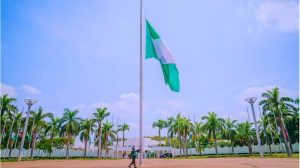
The interlocking forms of oppression, expropriation of ancestral lands and resources of indigenous people and policies of inequitable relations are unsustainable and are sticking out like a sore thump. By focusing on these areas, Nigeria can overcome its historical obstacles and forge a path toward mutual respect, peaceful coexistence, stability, and prosperity.
Leadership and Citizen Participation
The task of Nigeria’s rebirth cannot be accomplished without first facing the damning realities of our differentness. We need an effective leadership that will dispassionately articulate and confront the fears of the indigenous ethnic groups and strategically work at getting a structure that will assuage the ingrained distrust. Leadership must exhibit an unwavering commitment to the vision and able to take bold steps to implement necessary reforms. Simultaneously, citizens must actively participate in the process, demanding accountability and playing an integral role in shaping the nation’s destiny. Additionally, the media and civil society organizations have a vital role to play in promoting transparency, raising awareness, and fostering an environment conducive to positive change.
Embracing International Cooperation
Recognizing the interconnectedness of our globalized world, Nigeria’s rebirth will also necessitate international cooperation and partnerships. Identifying and engaging with friendly regional and global actors, learning from successful case studies, and mobilizing resources for sustainable development are crucial elements of this collaborative approach.
It is important to learn from the experiences of other successful ethnically heterogeneous countries.
Several countries, such as Switzerland, Spain, Canada, and Germany, have successfully implemented regional autonomy models to address challenges related to decentralization and governance. Analyzing these models can provide valuable insights into best practices, potential pitfalls, and the institutional frameworks required for successful implementation. It is crucial to adapt these lessons to suit Nigeria’s unique socio-cultural context while considering the aspirations and socio-political experiences of its diverse population.
In many countries that embrace symmetric federalism, linguistic, cultural, and political diversity has been accommodated effectively, fostering stability, prosperity, and social harmony.
Historical Perspective:
The historical context of Nigeria’s diverse ethnic groups, the pre-colonial level of development, amalgamation process, and their limited interactions during the colonial era, the immediate pre and post-independence shenanigans contributed greatly to the current feeling of political and economic enslavement by the indigenous people of Nigeria.

FOUNDATIONAL PROBLEMS
Pre-colonial ethnic groups:
What is referred to as Nigeria today were originally independent kingdoms that was amalgamated in 1914. There are over 300 ethnic groups and over 500 languages, most of which has sharply different social structuring, in Nigeria.
According to Awolowo, in his book, “The People’s Republic”, Nigeria has 10 major nations and 41 minority nations. That is a total of 51 nations.
Most of these empires and kingdoms were at various stages of civilization and development and had developed their own unique cultures, religions, and governance systems. Like most other kingdoms, they were the land of fascist territorial expansions”.
Today’s Northern Nigeria is an amalgamation of the Fourteen Kingdoms, Hausa Bakwai, and Banza Bakwai. These diverse lore and heritage territories were built into a cohesive ethno-religious structure by Usman dan Fodio through Jihad. By 1803, the Hausa Bakwai had become the Sokoto Caliphate and was divided into emirates under hereditary Emirs. These emirates came under the political, social, and religious control of the commander of the faithful, the Sultan of Sokoto. The Bornu Empire was also absorbed into the Sokoto Caliphate under Usman dan Fodio but broke away later.
Yoruba people are found mainly in present-day Ekiti, Lagos, Ogun, Ondo, Osun, and Oyo States. They make up a sizable proportion of the Kwara, Kogi, Edo, and Delta States of Nigeria. There are also people of Yoruba descent in other African countries such as Egypt, Ghana, Togo, Sierra Leone, Burkina Faso, Ivory Coast, and Liberia. The Yoruba people, though not monolithic, have a rich history of sophisticated governance systems and social organization which predates colonialism.
The Igbo people are an ethnic group primarily found in Abia, Anambra, Ebonyi, Enugu, and Imo states. A sizable Igbo population is also found in Delta and Rivers States. There are also Ethnic Igbo populations found in Cameroon, Gabon, and Equatorial Guinea, as migrants as well as outside Africa.
During the colonial era, the diversity within each of Nigeria’s major ethnic groups slowly decreased, and distinctions between the Igbo and other large ethnic groups, such as the Hausa and the Yoruba, became sharper.
Yoruba had early contact with the missionaries, giving them an educational edge. Methodist missionaries started the first primary school in Nigeria in 1843 in Badagry. Christian Missionaries started CMS grammar school in Lagos in 1854, while the first university started in Ibadan in 1948. The first Nigerian lawyer, Christopher Sapara Williams was called to the English bar on November 17, 1879. The First Nigerian medical doctor, a Yoruba man born in Sierra Leone, graduated in 1876, the first female medical doctor in Nigeria, Elizabeth Abimbola Awoliyi, graduated in 1938. Chief Akintola Williams qualified as a chartered accountant in 1949, becoming the first African Chartered Accountant.
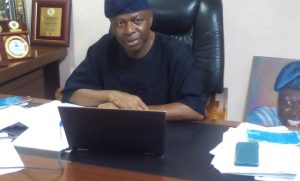
Nigeria’s first road for motorized vehicles was built in 1906 from Ibadan to Oyo. The first general hospital was established in 1893 in Odan, Lagos Island. In politics, elective democracy was introduced in Nigeria in May 1919 with the right to vote for three members of the Lagos Town Council. The 1922 constitution introduced the election of four elected representatives into the Legislative Council, three for Lagos and one for Calabar.
Sir Herbert Macaulay, popularly referred to as the father of Nigerian nationalism formed the Nigerian National Democratic Party (NNDP) in 1923. The NNDP won all three seats in Lagos into the legislative council in 1923, 1928, and 1933 elections. With the formation of the National Youth Council in 1938, more strident agitation for economic and educational development, Africanization of the civil service, and self-government for Lagos began.
HOW NIGERIA WAS CREATED:
Europeans got involved in the slave trade in West Africa around 1650. Lagos became a major slave port in the late 1700s and into the 1850s, was annexed on August 6, 1861, and became a colony on March 5, 1862. Slavery was outlawed in 1807, but under the guise of policing and discouraging the slave trade and promoting the lucrative trade in cotton and palm oil, Britain entrenched itself by deploying its military, economic, and political arsenals in their quest for territorial expansion and the enlargement of economic frontiers in what is today’s Nigeria.
By the 1820s, the British had made connections with the Caliphate, “whose highly structured society, aristocracy, and religion struck colonial administrators as more “civilized” than the war-torn groups they encountered in the South.”
In 1879, George Taubman Goldie conceived the idea of merging various British companies to form a monopoly. Thus, the United Africa Company (UAC) was formed from the merger of 4 companies trading in the Niger River area. In 1881, Sir Goldie obtained a charter for UAC, which became the National African Company (NAC). The Oil River Protectorate was established in 1884. Goldie was a member of the British team in Berlin in 1884, where he successfully defended the interests of Britain against the French and German interests.
In 1886, NAC became the Royal Niger Company. Most of Nigeria was ruled by the Royal Niger Company under charter between 1886 and 1899. The political interests of the British government and the commercial interests of British companies soon converged with the religious interests of religious organizations, and Britain assumed governance of the protectorates. The Royal Niger Company was paid £865,000 and given the rights to half of all mining revenue in a large part of the area for 99 years in exchange for ceding the territory to the British government, and its charter was revoked.

During the so-called Scramble for Africa, the European powers of the day gathered in Berlin from November 15 to February 26, 1885. After the 3-month conference, without the consent of Africans, boundaries were arbitrarily and hastily drawn to form countries of diverse ethnic groups and mosaic cultures.
That Conference established the partitioning of Africa and legitimized the process of making Africa the “resource yard” for the 14 European countries. They, as conquerors, assumed the position of the legitimate “owners” of the people and wealth of Africa. They determine Africa’s political, economic and social fate while also ensuring that any African government that makes that difficult or impossible is forcefully removed.
Lugard was appointed the High Commissioner of the newly created Northern Nigeria Protectorate. Around this time, there was also an influx of French, Portuguese, British, and even Italian evangelicals on missions to convert the people on the coastlines. They introduced formal educational programmes and denigrated our religions and cultural beliefs to introduce Christianity.
The colony established a protectorate over most of Yorubaland between 1890 and 1897 and was incorporated into the new Southern Nigeria Protectorate in February 1906.
The expression of explicit bias by the British officials, which initially seemed innocuous, soon reflected itself in their policies and politics. They created great distrust, tending towards enmity among the various ethnic groups.
The formation of the Southern and Northern Nigeria Protectorates transformed Britain’s purely commercial enterprise concern into Nigeria’s autocratic and bureaucratic governance in 1900.
In 1914, Southern Nigeria was joined with the Northern Nigeria Protectorate to form the single colony of Nigeria. The unification was done for economic reasons and the colonial administration sought to use the budget surpluses in Southern Nigeria to offset this deficit in the north.”2
The amalgamation brought together people of different backgrounds, languages, identities, cultures, and aspirations. Some of these ethnic groups are spread across different countries. The ethnic groups were mostly autonomous and hardly related to each other even after the amalgamation. However, a minority group, a small percentage without ancestral roots, seized control of land resources and instruments of governance and have since developed settler colonialism as their avowed ideology.
BORDERLESS NIGERIA
Because the colonialists simply drew lines on maps without consulting Africans or an understanding of the people and their history, most of the border areas were blurry and lacked clear demarcations. The borders, therefore, exist only in name.

Some ethnic groups, perhaps deliberately, refused to understand or accept the boundaries as set at the Berlin Conference. “It is clear that the people see, and rightly so, ethnic affinity, language, and culture as a more binding force of brotherhood than any illusory division through arbitrarily imposed borders or phony boundaries. This makes it difficult for Hausa, Fulani, Yoruba, or Igbo people to warmly embrace each other, even though they are fellow Nigerians. The four million Kanuri in Nigeria will consider the almost 3.7 million Kanuri from Niger, Chad, and Cameroon brothers. Thus, the phony boundaries are usually honoured more in the breach than in the observance”.
Thus, Nigeria is a borderless country, and it is difficult to determine who is actually a Nigerian.
COLONIAL NIGERIA:
Nigeria had ten Governor Generals between the amalgamation of the protectorates in 1914 and its 1960 independence. Sir Fedrick Lugard (1914–1919), Sir Hugh Clifford (1919–1925), Sir Graeme Thomson (1925–1931), Sir Donald Cameron (1931–1935), Sir Bourdillon (1939–1943), Sir John Evelyn Shuckburgh (1940–1942), Sir Alan Burns (1942–1943), Sir Arthur Richard (1943–1948), Sir John Macpherson (1948–1955), and Sir James Wilson Robertson (1955–1960)
Colonial politics and economic policies tended to benefit the elites of the dominant groups at the expense of less influential ethnic minority groups.
Ethnic and kinship bonding became imperative in the 1920s, and various ethnic groups began to form a common front to protect and project their interests. Tribal unions became fashionable. The first ethnic union was Ibibio Union, which was formed in 1928. The Igbo Federal Union (IFU) was established in 1936 and aligned with the National Council of Nigeria and the Cameroons (NCNC). Egbe Omo Yoruba was formed in 1948. Egbe Omo Yoruba also worked with the Action Group. “Jamiyyar Mutanen Arewa was formed in 1949. It became the Northern Peoples’ Congress in 1951. These organisations were banned by the Military in 1966.
“With identity politics, every issue became “we” versus “them” as politicians leveraged cultural and ethnic differences to promote affective interethnic polarisation and political fragmentation. People began to see everything as a zero-sum game, and each ethnic group viciously fought for slices of a fixed pie. The creed then was North for Northerners, West for Westerners, and East for Easterners.
Cultism entered and became a menace. People bond together in cults for physical, social, financial, economic, and political protection. Groups like the Ogboni Society for the Yorubas. Efiks and some parts of the South East had the Ekpe secret cult and the Mid-West (Delta and Edo State) had the Ekine and Owegbe Cult.
The divisive politics of the colonialists were institutionalized. Now, unable to trust the colonial government, each ethnic group or region formed socio-ethnic groupings to protect their group against each other. They are also effectively playing the role of opposition to the Federal government, even after independence. We have Ohanaeze Nd’igbo for the Igbo of the Southeast; Afenifere and Yoruba Council of Elders for the Yoruba of the Southwest, Pan-Niger Delta Development Forum (PANDEF) for the South-South region, Middle Belt Forum (MBF) for the North Central, and Arewa Consultative Forum (ACF) and Northern Elders Forum (NEF) for the Northwest and Northeast.
One of the most contentious issues from the colonial era that remains unresolved is intergovernmental fiscal relations. Nigeria had eight ad hoc revenue allocation commissions and committees, four, before independence (1946–1958) and four after (1964-1980). Then, in 1989, the Revenue Mobilisation Allocation and Fiscal Commission (RMAFC) was established as a permanent commission. There have also been many reviews with military decrees.
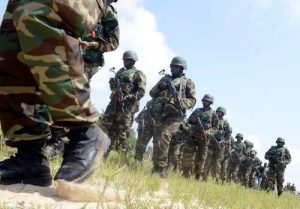
The Military Era.
The Military compounded Nigeria’s political entanglement. The military took over, and a process of centralization started with the Unification Decree 34 of 1966. The decree destroyed Federalism in Nigeria. It introduced Unitarianism, abolished all forms of regional self-government and autonomy by transferring the powers of autonomous regions to the central government. Subsequently, other military governments gradually sealed the fate of federalism through various constitutional reviews and decrees. They created states which were economically and socially dependent on the central government. Federalism became extinct in Nigeria. The trajectory was sustained by the civilian governments, which inherited a corroded federal structure and had to work with whatever constitution was imposed on them by the military government that instituted them. They reverted the existing customs and laws that guaranteed the ownership and control of ancestral and resources and vested them in the central government.
MILITARY JUNTAS:
The military juntas threw out the 1963 constitution and assumed legislative and executive authority by force of arms. They promulgate laws by unchallenged decrees and use political and social tools to manipulate the system to achieve hegemonic goals.
On January 15, 1966, there was a military coup led by Major Chukwuma Kaduna Nzeogu, an Igbo officer, and this paved the way for General Aguiyi Ironsi, another Igbo officer, to become the head of state. In executing the 1966 coup, the coupists gruesomely murdered political and military of Northern, Western and Midwest extractions but all leaders of Eastern origin were conveniently spared. Easterners celebrated the coup, pilloried, mocked, composed songs to ridicule leaders of other ethnic groups especially the Northerners. The coup became a source of grievance, hate, resentment, and fear. On February 23, 1966, Major Isaac Jasper Adaka Boro declared the Niger Delta Republic because he believed that the Federal Government and the Eastern Region government were benefiting from oil and gas exploitation to the exclusion of the Niger Delta. The Ironsi government battled Adaka Boro for almost two weeks before the secession was crushed.
The repercussion of the indiscretionary handling of the January 1966 coup and its political fallout was a revenge coup détat staged by the Hausa/Fulani officers in July 1966 against the “Igbo officers’ coup”. General Aguiyi Ironsi along with his host, Colonel Adekunle Fajuyi was murdered in Ibadan. This was followed with the massacre of Igbos in the North. Eventually, a civil war broke out in July 1967 and ended in January 1970.

The political, emotional, and physical consequences of that war are still haunting the nation to this day. The ethnic groups continue to perpetuate centuries-old disputes over boundaries, religion, and other past wrongs. Memories of past atrocities remain etched in the minds of the victims, fueling pathological hatred and fantasies of revenge. These unresolved problems from past generations are still creating tension till today.
Nigeria, with three autonomous regions at independence, became four regions in 1963 by referendum. There were exclusive (federal only), concurrent (Federal and Regional), and residual (regional) legislative lists. The federal government had overriding power over the regional governments under the concurrent legislative list. The military came in 1966 and created 36 states. The states, created by the military elites of Northern extraction, are unviable and have to depend on the Central government for resources. The states are completely subordinate to the central government, and the structure is overly centralized. The Federal institutions were weakened, and the federal structure was destroyed.
The Northern Region now has 19 States and the Federal Capital Territory, with 417 Local Government Areas. The old Western Region is now 8 States with 181 Local Government Areas, while the then-eastern region has been divided into nine States with 176 Local Government areas. It soon became obvious that the fragmentation in the form of state and local government creation was strategic. State creation is an attempt to break the bond of unity between ethnic groups. It gives brothers divided into different states or local governments’ phantom sense of separate identities. It also served two other purposes. One, consolidate the hegemonic agenda, and two, to funnel more resources through a greater share of the Federation Account into the favoured region.
CONSTITUTIONS WITHOUT PEOPLES’ CONSENT
In 1979, the military handpicked some people (49 in number) to fashion out another constitution for the country with a proviso that certain areas were no-go areas. The Constitution Drafting Committee adopted majoritarian democracy claiming to adopt America’s system of Presidential constitutions. But the USA is not a majoritarian democracy. In the United States of America, garnering a majority of votes in a presidential election does not guarantee a candidate a seat in the White House. Also, like in most federations, National Security and Public Security are not centralized in the USA.
The 1999 constitution was compiled by a committee appointed by the military, which had barely two months to consult with Nigerians before submitting its report. It gained legitimacy through a decree.
The 1963 Constitution had 45 items on the exclusive legislative list and 29 items on the concurrent list. The 1979 Constitution had 67 items on the exclusive legislative list and 12 items on the concurrent list. While the 1999 Constitution increased the exclusive list to 68 but retained the concurrent lists at 12 items. It is clear that the military governments were strengthening the federal government while weakening the states at every given opportunity. The Local Government system is in all practical purposes non-functional.
The over-centralisation of governance has created disillusionment in a lot of people, resulting in a cacophony of voices; some asking for a change to “true federalism”, some for devolution of powers, and some for outright self-determination.
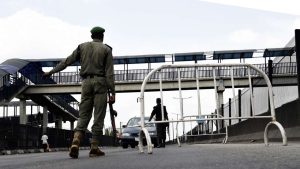
Section 8: The Current Conundrum: Nigeria faces several complex challenges that contribute to its conundrum including ethnic and religious tensions, crony capitalism, corruption, insecurity, over-centralization of power and resource which disadvantaged the masses and the minorities. The colonial masters crafted a dysfunctional political system, deliberately handed it over to the least prepared and encouraged the military to ensure the people are perpetually held down.
WHERE WE ARE:
Nigeria is in a state of flux, and the fault lines are widening. Policies and critical appointments have been ethnicized. The historically unjust political relationship has produced a deluge of socio-economic and political crises. Most observers agree that the Nigeria question is very serious. What with political shenanigans ravaging the political space, crony capitalism, and ethnic demagoguery? Ethnic consciousness and religious tensions ravaging the country are traceable to the perceived restriction of economic, social, and leadership opportunities.
The education system is in shambles. The economy is comatose. Unemployment is unprecedentedly high. Insecurity pervades everywhere. Nigeria is not working and is teetering dangerously on the brink of disintegration. These imbue the ethnic groups with the zeal to salvage and protect their ethnic nationality. It is becoming fashionable to clamour for separation. The southern ethnic groups, particularly, are unapologetic about their wish to secede. The Middle Belt region and minorities in the North are agitated and under the heavy yoke of poverty, insecurity, and the seeming complicity of leadership. Minorities are now more politically awakened, and the desire of the masses to choose their political destiny is reaching a crescendo. As the capacity of the hegemonists to manipulate the people is at a historic low, they conflate the request for self-determination with secession.
Colonia Britain created Nigeria but was unable to create Nigerians out of the diverse ethnic groups, nor had succeeding leaders been able to create an appropriate political mechanism to integrate the people into accepting a common nationality.
The self-determination sentiments may also not be unconnected with incessant warring over territories and the ill-disguised expansionist and settler colonialism agendas of some ethnic groups. There seems to be a coordinated program of genocide of indigenous peoples and the reconfiguring of indigenous land into settler colonies. It’s now obvious to the indigenous ethnic groups that they may perish if expansionism is not buried.
On Sunday, April 22, 1990, Major Gideon Orkar led some middle-ranking soldiers, mainly of Middle Belt and Southern Nigeria origin, to stage a coup d’etat against the government of General Ibrahim Babangida, ostensibly to free the “marginalised, oppressed, and enslaved peoples of the Middle Belt and the south. Their solution to the problems of Nigeria included excising (then five states of the core North), nine northern states, Sokoto, Kebbi, Zamfara, Kano, Jigawa, Katsina, Bauchi, and Gombe, Borno, and Yobe. The excised states might only be absolved back into the Nigerian nation if they fulfilled certain conditions. But the coup d’etat failed.
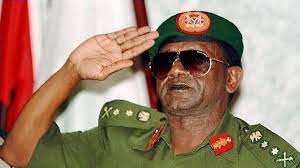
In 2016, the Movement for the Emancipation of the Niger Delta (MEND) and Niger Delta Liberation Front threw the Niger Delta region into crisis as they demand the Niger Delta Republic. The Indigenous People of Biafra (IPOB), a separatist group, is hoping to restore the Republic of Biafra. The attempt to secede, and create the dependent Republic of Biafra in 1967 resulted in a Nigerian Civil War (1967–1971). IPOB and other Biafran separatist groups are fighting a low-level guerilla conflict in the southeastern region. While Odua People Congress, Ilana Omo Odua, are clamouring for separation just like many other ethnic groups.
The poor conflict-handling strategies of the political leaders and their refusal to address the old grievances are exacerbating intolerance against the structure of society itself and may soon overflow into a revolution.
Any country with a history of civil war needs much care, as the prospects of another war are always high. There is no record of a country that has survived two civil wars. Yet, Nigeria is constantly on the edge.
RICH COUNTRY, POOR CITIZENS
Nigeria is richly endowed with a variety of Natural Resources, a vast landmass, and huge human capital. But according to the OxFam Report, “Nigeria is not a poor country, yet millions are living in hunger. The government must work with the international community to get food and aid to hungry people now. But it can’t stop there. It must free millions of Nigerians from poverty by building a new political and economic system that works for everyone, not just a fortunate few.”
UNDERSTANDING AND REMOVING THE WEDGE ISSUES
REMOVING THE WEDGE ISSUES:
Now is the time to address the fundamental issues hindering progress, embrace a shared vision, and foster collaboration. Nigeria can embark on a path of rebirth that will ultimately lead to sustainable development, social harmony, and an improved quality of life for its citizens. Rebirth is inevitable. We cannot afford to play the ostrich any longer. The foundation has been destroyed.
Wisdom dictates that we seek to repair the substructure before building the superstructure. We should understand and remove the wedge issues without which peace will always be elusive.
Who is a Nigerian? Many professed dual allegiance and may readily foreswear Nigeria on account of ethnicity. There is an urgent need to establish and respect the international and Regional boundaries as well as agree who qualifies to be called a Nigerian, the rights and obligations of bona-fide Nigerians. Many are in quandary concerning their kith and kin found in other countries though they desire to remain in Nigeria. These people are seeing as promoting settler colonialism, a quest which is driving fear into other ethnic groups. There are also those in perennial quest for secession and without a scintilla of wish to be called Nigerians. The concept of symmetric federalism embedded in United Region of Nigeria will obviate the trilemma in the present quasi-unitary system as each region controls its population and manages its ancestral land and resources.
Majoritarian democracy: Majoritarian democracy with winner-takes-all corroded the negotiated federal structure, squared the circle, and promoted the legacy of the tyranny of the majority and fear of domination and marginalization. Majoritarian democracy conferred veto power on a section of the country without expressly putting it in the constitution. Concentration of power in the hands of a few elites has generally proved to be unfavorable conditions for producing political and social stability in a complex multinational state with plural social realities and multiple fault lines. Majoritarian democracy has produced perennial intractable conflicts.
Centralized National Security and Public Security: At independence, National Security (issues that concern securing the country against external threats, border security, intelligence, and counter-intelligence) was separated from Public Security (enforcement of laws, administration of justice, and maintenance of public order). There were Federal and Local Police Forces. General Yakubu Gowon disbanded the local police in line with the recommendation of the Gobir Panel, which was set up in 1966 by Aguyi Ironsi.
The centralization of the security and law enforcement systems made Nigeria a warped federation.
Fiscal Federalism: The Resource control and fiscal federalism nexus is one of the most divisive issues confronting Nigeria.
The Raisman Commission of 1958 created the Distributable Pool Account. The revenue from mining rents and royalties was allocated to, the central government at 20%, the regions at 50%, and the Distributable Pool, at 30%. The Bins Commission (1964) was appointed under Section 164 of the 1963 Republican Constitution to review the pooled account. The Commission’s work was carried out in secret, leading to doubt and mistrust concerning its proposed distributions. The principle of derivation was abandoned. Soon after the Bins report, the military took over, and a process of centralization started. General Gowon reduced it to 45% in 1970 and further slashed it in 1975 to 20%. The Obasanjo/YarAdua administration raised it to 25%, Shehu Shagaria reduced it to 5% in 1981; General Buhari later crashed it to 1.5%, General Babangida pretended to raise it to 3%, and Ken Saro Wiwa’s pressure got the government to raise it to 13% as in Nigeria’s constitution. The demands from the oil-producing regions to keep all the revenues from natural resources contributed to the Biafran civil war.
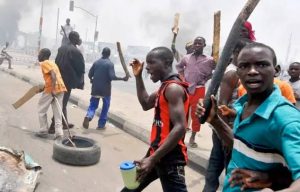
Roadmap to symmetric Federalism
We have to embrace the “first principle thinking”, break things down to their fundamental axioms to get into the core issues.
This section provides a roadmap to guide Nigeria toward achieving symmetric federalism, emphasizing the importance of constitutional reforms, inter-governmental cooperation, capacity-building, and public engagement. By pursuing this roadmap, Nigeria can create a governance structure with a balanced and inclusive symmetric federalism system. This will enable regional autonomy, strengthen governance, and drive sustainable development, ultimately fostering a united and prosperous Nigeria
Vision: To establish a symmetric federalism system in Nigeria that fosters equitable governance, regional identity and autonomy, sustainable development, ensuring unity, inclusivity, and prosperity for all citizens.
Mission: To initiate and implement a symmetric federalism framework in Nigeria through constitutional reforms, intergovernmental cooperation, capacity-building, and public engagement. We aim to rebalance power and resources, strengthen regional autonomy, and promote effective governance, socio-economic development, and political representation across all regions.
Constitutional reforms:
Nigeria’s political crisis is complex and challenging. The imposed 1999 constitution is inoperable and the present governance structure needs a complete overhaul. The way forward is to first go back to the starting block. It is time we develop a homegrown hybrid governance system that incorporate elements of democracy that will be inclusive and allow every section of the country to develop to its full potentials.
Nigeria is suffering from serious structural defects. The foundational problems, weak governance structures, ethno-religious conflicts, inequality, and inequitable power relations have exacerbated the situation, leaving a trail of perennial crisis, ethnic distrust, and social unrest in their wake. To address these challenges, a collective commitment to change is imperative.
Intergovernmental Cooperation:
Recognizing the interconnectedness of our globalized world, Nigeria’s rebirth will also necessitate international cooperation and partnerships. Engaging with regional and global actors, learning from successful case studies, and mobilizing resources for sustainable development are crucial elements of this collaborative approach.
Approach:
A bottom-up approach is recommended with conversation starting at the grass root level. We advocate a conversation series starting from the ward level to determine which local government they choose to belong to. At the local government level to determine which state they want to belong to and at the state level to determine which region they want to belong to. The local government, state, and region should choose their names.
Creation of arms of government like Local government, States and Regions should be based on viability, economic potential, contiguity, ability to promote sustainable development, inclusiveness, and citizens’ welfare.
Ownership of ancestral lands shall be private, collective or communal as may be considered by the region. Local government should be constitutionally empowered by the regions to develop, control, and use the lands and natural resources. The right to stay in the territories, the right to regulate the entry of migrants, the right to claim parts of ancestral land previously reserved for various purposes except those reserved and intended for common and public welfare and service.

Revenue allocation should be 20% to the Central government and 80% to the regions. Region shall establish the revenue sharing formula between the region, state and local government
All election shall be conducted by the regions
The regions should have their own unique constitution and then a national conversation to determine relationships between the regions and how the nation is to be governed.
Regional and National Conversation on National Rebirth
Regional:
Ethnic groups within each state should be mobilized with emphasis on their right to unify and to articulate and defend their lives and territory The need to recognize ethnic nationalities and respect their right to self-determination; Every region and stakeholder should partake in the Regional conversation. Promote plebiscites for each ethnic group to determine their region of preference,
Each Region should draw a regional constitution and Anthem
National: A conversation to achieve a political environment that will engender mutual respect, promote the interests of the constituent ethnic groups, and preserve the diversity of the people while maintaining the unity of the heterogeneous ethnic groups, including:
Promoting the preservation of diverse ethnic groups, Delineating the regional and national boundaries and Drawing up a constitution for the United Region of Nigeria (URN) with symmetric federalism.
IMPLEMENTATION STRATEGIES
Inclusive Dialogue and Consensus-Building:
Implementing a restructuring plan of the envisaged magnitude requires inclusive dialogue and consensus-building among various stakeholders. This process should involve representatives from ethnic groups in each local government area, state, and possible regions, as well as political parties, civil society organizations, traditional leaders, professional bodies, trade unions, and other relevant actors.
Open and Transparent Discussions:
Open and transparent discussions are essential to identify shared goals, concerns, and aspirations, building trust, and fostering a sense of ownership among participants. Inclusive dialogue can help address misconceptions, mitigate conflicts, and foster a collective understanding of the restructuring objectives, thereby increasing the chances of successful implementation.
Conflict Resolution Mechanisms:
Develop conflict resolution mechanisms, such as mediation and arbitration bodies, to manage inter-regional disputes. Foster an environment of dialogue, trust-building, and mutual respect among regions. Implement measures to promote inter-regional cooperation, economic integration, and shared development projects to foster a sense of common purpose and unity.
Gradual Transition and Phased Approach to Restructuring:
Given the complexities and potential challenges associated with restructuring, adopting a gradual transition and phased approach is advisable. This approach allows for careful planning, piloting of initiatives, and gradual adjustments to the constitutional, legal, and administrative framework. By implementing changes in stages, the potential risks and disruptions can be minimized while simultaneously ensuring that the necessary groundwork, such as establishing regional governance structures and refining legislative frameworks, is effectively carried out. This gradual approach allows for continuous evaluation and adjustment based on lessons learned, ultimately increasing the likelihood of successful implementation.
We may phase the transition such that the full implementation of the new constitution for the United Regions of Nigeria could be on October 1, 2027, while the states (Province) could take off by May 29, 2025, and the regions by May 29, 2026.
Capacity-Building and Institutional Strengthening: The successful implementation of the restructuring plan requires substantial capacity-building and institutional strengthening at various levels of governance. This will involve providing comprehensive training and allocating resources to regional administrators, civil servants, and state and local government officials to effectively manage their new responsibilities. Additionally, establishing or enhancing institutions responsible for overseeing inter-regional coordination, resource allocation, and conflict resolution is crucial. By investing in human capital development and reinforcing institutions, the regions can govern themselves more efficiently, ensure effective service delivery, and promote sustainable development.
RESCUING A BELEAGUERED NATION:
The political, social and economic structures in most African countries inhibit integration, peace and progress. This is causing avoidable conflicts and suffering. It is clear that most countries in Africa are victims of deliberately created Structural violence.
“Self-determination of peoples” is one of the fundamental principles of the UN. At the 2005 World Summit, all members of the United Nations General Assembly unanimously adopted The Responsibility to Protect (R2P). The R2P consists of three important and mutually-reinforcing pillars, as articulated in the 2009 Report of the Secretary-General on the issue, and which build off paragraphs 138 and 139 of the 2005 World Summit Outcome Document and the intergovernmental agreement to the principle. These are: the protection responsibilities of the state; International assistance and capacity-building, and timely and decisive response.
A territorial community or ethnic group is not obliged to remain in a union if circumstances are not conducive or the union is not willing or able to protect it. Every ethnic group that feels oppressed or unwanted in a country should be free to determine their own destiny. Every ethnic group should be allowed to choose the political and economic status that suits them. We expect the Africa Union, Economic Committee of West African States (ECOWAS), and UN to support a fair, democratic referendum in which inhabitants could determine how they prefer to be governed.
It should be noted that sovereignty can only be respected when responsibility is upheld. When the citizens or a certain group become vulnerable and “their Governments become their persecutors instead of their protectors or can no longer shield them from marauding armed groups,” as it is today, clamouring for secession becomes inevitable. There is serious cause for concern. Non-state actors now challenge the sovereignty of the state; they collect taxes, carry guns, and have control over some sections of the country. In its failed dynamics, the state is unable to perform its primary function of protecting lives and property, on which the state as a social contract is based. Today’s spate of unresolved violent attacks, the strategy used, and the targets are characterized by false flag operations. The attitude and comments of some top officials point fingers at conspiracy theories.

Nigeria is in a perilous state and is rated as being close to a failed state, with a Fragile State Index of one of the worst in the world.
THE WAY FORWARD: SYMMETRIC FEDERALISM
The 1963 constitution, which is the last legitimate constitution for Nigeria, made Nigeria a Federal Republic, thus the name the Federal Republic of Nigeria.
According to Wikipedia, “A federation (also known as a federal state) is a political entity characterized by a union of partially self-governing provinces, states, or other regions under a central federal government (federalism). Alternatively, a federation is a form of government in which sovereign power is formally divided between a central authority and a number of constituent regions so that each region retains some degree of control over its internal affairs”. The same Wikipedia defined a republic as “a group with certain equality between its members.”
It, therefore, means our forefathers and our colonisers agreed that Nigeria should be a political entity, a union of equal and partially self-governing regions.
Political prudence and morality demand a dispassionate reevaluation of the political, economic and social status of the citizens’ pre and post-independence, pre and post military adventure and the current “democratic” dispensation. It has become imperative for Nigerians to consider a form of consociational democracy that will accommodate and serve the interests of the various ethnic groups, major or minor if Nigeria is to survive as a single country. The present tension may not abate until and unless each region becomes partially self-governing by retaining some degree of control over its environment and internal affairs, as envisioned by the 1963 Constitution.
We do not have any alternative but to return to the pre-independence arrangement of autonomous regions. The 1999 constitution created a “federal system” of government with acute dysfunctionality and made Nigeria more susceptible to perennial crisis. Nigeria risks disintegration under the present imposed constitutional arrangement.
IT’S TIME TO TALK
We accept that only naïve political enthusiasts will think another conversation is the silver bullet to undo decades of huge inter-ethnic distrust. Distrust is a rational reaction. Building a national identity and working together in a multinational state is a complicated process. We must work hard at understanding the expectations of the different groups and how to meet them. We should put in place measures to combat the impunity of fait accompli, corruption, and crony capitalism.
It is time we discuss the future of Nigeria.
The future of Nigeria begins with accepting the rights of the indigenous ethnic nationalities as enshrined in the United Nations Declaration on the Rights of Indigenous Peoples, which was adopted at the 107th plenary meeting on September 13, 2007, and recognized “the urgent need to respect and promote the inherent rights of indigenous peoples, which derive from their political, economic and social structures and from their cultures, spiritual traditions, histories and philosophies, especially their rights to their lands, territories and resources.”
Article 3: Indigenous peoples have the right to self-determination. By virtue of that right, they freely determine their political status and freely pursue their economic, social, and cultural development.
Article 4: Indigenous peoples, in exercising their right to self-determination, have the right to autonomy or self-government in matters relating to their internal and local affairs, as well as ways and means for financing their autonomous functions.
Article 5: Indigenous peoples have the right to maintain and strengthen their distinct political, legal, economic, social, and cultural institutions while retaining their right to participate fully, if they so choose, in the political, economic, social, and cultural life of the State.
Relying on the above articles of the declaration, we are convinced that it is perfectly within the rights of the indigenous ethnic groups to seek autonomous regions within the nation of Nigeria.
Ethnic Agitation
The indigenous ethnic groups have been emasculated. They crave real freedom. The current heightened agitation for restructuring and self-determination is a product of inequality and inequitable power relations. Fait accompli, an emergent statecraft strategy, was perfected by the military. They organize coup d’états to impose regimes, weaken the federal institutions, and exclude other ethnic groups from strategic appointments. The complementary strategy to fait accompli was to intensify the annexation threat and salami slicing to wrest territories through organized crime, even by non-indigenes.
Politically, the present fear of ethnic cleansing, land grabbing, annexation, and general insecurity are pointers to settler colonialism. Indigenous ethnic groups started to protect and promote their ethnic agenda as there were not many serious efforts directed at nation-building, constructing a national identity, or the unification of the people. Nigeria is not politically stable or viable. Practical nation-building efforts should start with recognizing the rights of the indigenous group to preserve their identity and self-govern themselves. Indigenous ethnic groups crave the right to own their ancestral land. These rights include the right to develop, control, and use the lands and natural resources, the right to stay in the territories, the right to regulate the entry of migrants, the right to claim parts of ancestral land previously reserved for various purposes except those reserved and intended for common and public welfare and service.
“Land, territories and related resource rights are of fundamental importance to indigenous peoples since they constitute the basis of their economic livelihood and are the sources of their spiritual, cultural and social identity. Land is the foundation for the lives and cultures of indigenous peoples all over the world. Without access to, and respect of their rights over, their lands, territories and natural resources, indigenous peoples’ distinct cultures, and the possibility of determining their own development and future, become eroded.”
The Kennedy School of Government at Harvard’s project on the Nation Building Model defined Nation-building as “Equipping First Nations with the institutional foundation necessary to increase their capacity to effectively assert self-governing powers on behalf of their own economic, social, and cultural objectives.”
The study identified four core elements of a nation-building model:
Genuine self-rule (First Nations (indigenous ethnic groups) making decisions about resource allocations, project funding, and development strategy), creating effective governing institutions (non-politicized dispute resolution mechanisms and getting rid of corruption), cultural match (giving first nations institutions legitimacy in the eyes of their citizens), and The need for a strategic orientation (long-term planning).
Consent of the Governed
According to Wikipedia, “In political philosophy, the phrase consent of the governed refers to the idea that a government’s legitimacy and moral rights to use state power are justified and lawful only when consented to by the people or society over which that political power is exercised.”
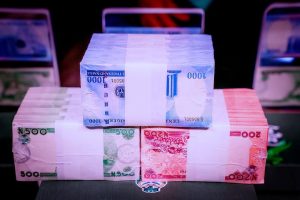
Article 21 of the Universal Declaration of Human Rights states that, “The will of the people shall be the basis of the authority of government.”
“The Government of the United Kingdom has held ten major referendums within the constituent countries of England, Scotland, Wales, and Northern Ireland on issues of devolution, sovereignty, and independence; the first such referendum was the 1973 Northern Ireland border poll.”
The all-Nigeria constitutional conference held at Ibadan in January 1950 gave rise to the 1951 Macpherson constitution, which created a quasi-federal structure for Nigeria. On October 1st, 1954, the Lyttleton Constitution confirmed the Nigerian colonial state as a Federation. Nigeria got independence in 1960 as a Federation with autonomous regions based on the realities of our historical antecedents and the need to respect the identities of the diverse indigenous groups. The military truncated the aspiration to build a great, big, united country.
The immediate challenge facing Nigeria and indeed Africa, today is the problem of the definition of democracy and how to deliver democracy. Generally, a democratic system of government is a form of government in which supreme power is vested in the people. Democracy requires the active participation and consent of the people. According to Chinua Achebe, “A functioning, robust democracy requires a healthy, educated, participatory followership, and an educated, morally grounded leadership.”
Also Carrie Chapman Catt, a leader of the American women’s suffrage movement: “Everybody counts in applying democracy. And there will never be a true democracy until every responsible and law-abiding adult in it, without regard to race, sex, color or creed has his or her own inalienable and unpurchasable voice in government.”
Democracy cannot be imposed without taking cognizance of the values and culture of the people. For democracy to be effective, it should be locally owned and appropriately domesticated with the unique historical, cultural and political diversities of communities integrated in an accountable and responsible leadership model of governance.
Nigeria and indeed Africa should therefore focus on how to develop a hybrid governance system that will incorporate elements of democracy while respecting cultural traditions especially in ethnically heterogeneous countries like Nigeria.
It is axiomatic that the promoters of democracy are duplicitous when it comes to the meaning, purpose and practice of democracy. To the colonialists, democracy as expected in Africa and in their countries has different meanings. It has become a neocolonialism tool to guarantee the unfettered looting of African assets, the liberty to dictate economic policies that suit them and the preserve insane privileges of the political elite.
In Nigeria, it is ludicrous that leaders are chosen, and access to position of authority is premised largely on ethnic and religious considerations rather than identifiable competences. Every succeeding government is inheriting a more ethnocentric and dystopia nation. We move from one inept leader to another as election results are manipulated and based on ethnic sentiments. Bullying, violence, intimidation has become critical electoral strategies. Elections exacerbate the inglorious relationship of mutual interethnic distrust. This further erodes the hope of achieving a united single territory. Nigeria comes closer to the precipice of disintegration at every national election.
Thus, democracy in Nigeria and Africa generally means ability to contrive to impose selfish, incompetent, corrupt and knowledgeless (SICK) people who are accountable only to the colonialists and their surrogates and feathers the nests of the officials and their cronies. They delight in leading people to misery; watch their subjects sink into poverty year in and year out and keeping the majority of the indigenous people outside the economic circle without qualms. Consent and welfare of the people are extraneous adjuncts.
There is an urgent need to seek the consent of the governed in a properly organised referendum. There cannot be democracy without the consent of the governed. Neither can you deliver democracy with a pat and contrived constitution that systematically excludes whole ethnic groups from political leadership.
The foundation and template on which an equitable polity could be built is a renegotiation of the term of the association, which takes into consideration the fact that what was originally negotiated was a federation of regions. We should return to an autonomous regional structure with the necessary amendments to take care of present exigencies as a basis for a reconfigured, equitable, and just Nigerian federation. It is the right and responsibility of ethnic nationalities and sub-communities to negotiate and voluntarily agree to live together under mutually beneficial terms. Territorial governance frameworks should be formulated on the basis that legitimacy and moral rights to exercise power over a people can be justified and lawful only with the freely given consent of the people.
To the credit of our founding fathers and the colonial masters, though there were various agitations, none was violent. We did not have to shed any human blood to gain independence; we don’t need bloodshed to live together or separate. Peaceful coexistence is possible in Nigeria, but mental, structural, and political readjustments are inevitable. We must talk!
Nigeria has had six constitutional conferences: 1953, 1954, 1957, 1958, 1959, and 1960; and eight constitutions, including the Sir Clifford Constitution (1922), the Sir Arthur Richards Constitution (1946), the Sir John Macpherson Constitution (1951), and Oliver Littleton’s Constitution (1954), all of which were actually enacted via an order-in-council of the then British monarch, then the Independence Constitution (1960); The Republican Constitution (1963); and the military-imposed 1979 and 1999 Constitutions.
The 1946 Richards Constitution was heavily criticised because it was deemed imposed. The people were not consulted, but it introduced a quasi-federal structure with three regions: east, north, and West.
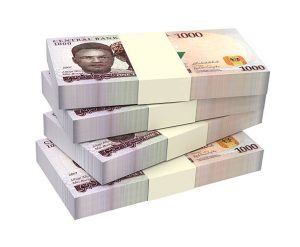
Macpherson came to Nigeria in 1948. He conducted the first direct consultations with the people, starting from the villages, towns, and districts up to the provincial level, to produce a new constitution. Regional conferences were held in Enugu, Ibadan, and Kaduna, and an all-Nigeria constitutional conference was held in Ibadan in January 1950. The entire process took about 6–7 months.
We must embrace a new political order to escape the current existential threats.
We, therefore, recommend that Nigeria return to its original regional structure as the United Regions of Nigeria with symmetrical federalism. Each region should have their own constitution to stipulate how they wish to govern their region and how they want to relate to other regions. Then there should be an interregional conversation to agree to a new Federal Constitution and to determine the interregional relationship. The present structure of the quasi-unitary system is not sustainable.

According to Ikudaisi Isola, in his book, “A Road to Nowhere”, “the greatest challenge facing Nigeria is the way it was grafted. Many ethnic groups in Nigeria have their kith and kin mapped into other countries, while groups with little or nothing in common are amalgamated. Forging a single country out of the diverse nations is an uphill task. But there is hope.”
Many indigenous ethnic groups have been entrapped in abusive relationships especially with disproportional power dynamics for long. Ethnic groups are being exploited, oppressed, and on the verge of extermination as a result of wrong choices, blind trusts of their past leaders and the old political norms.
Current political, security and economic challenges are prompts to reexamine old prejudices, take informed risks in cultivating new alliances including hedging to deter potential threats. To navigate these challenges, indigenous ethnic groups need to build new alliances, engage in strategic calculations to maximize their interests, address the common safety concerns and to enhance their influence in their immediate neighborhood.
It will be delusive to think the oppressors will not resist your efforts. Attempts at dismantling oppressive political systems will come with some risks. You need assurances of support of opinion leaders of the ethnic group and their trust in the ability of you and your team. Unity of purpose and self-confidence are powerful tools in liberation struggle.
Restructuring Nigeria may exacerbate inter-regional tensions and conflicts at the initial stage as power dynamics and resource control shift, but in the long run, it will bring peace and progress. These advantages not only have positive impacts on every group but also contribute to a broader society in various ways.
“Now, 135 years after Berlin, it is perhaps time for introspection. While it is impossible to turn back the clock, Africans would do well to reflect on what has happened since. Teaching the real history of the subjugation of the continent would help counter the myths of “ancient hatreds” that are said to fuel the conflicts on the continent. And Africans could decide to get together on the continent to debate and decide on the relationship they want with the rest of the world rather than always having that dictated to them from abroad” .
OUR PROPOSAL
Restructuring a nation is a complex and multifaceted process. The Federal Government should set up the National Rebirth Commission (NRC). The states should also establish the State Rebirth Commission (SRCs) to reestablishing autonomous regional structure as obtained in the 1959 (Independence) constitution, only that there should now be six regions.
National Rebirth Commission: The functions of the NRC shall include: manage and oversee the restructuring process, Establish mechanisms for ongoing monitoring and evaluation of the restructuring process to assess progress, identify challenges, and make necessary adjustments. Ensure transparency and accountability in the implementation of reforms

Foster diplomatic relations and cooperation with other nations and international organizations to access expertise, resources, and support for the restructuring process. Learn from successful case studies Mobilize resources for sustainable development Organize training and skill development for relevant stakeholders and change agents
Overcome Challenges and Implementation Strategies. Overcome resistance to change. Engage in massive enlightenment and cultivation campaign. Celebrate milestones and achievements along the way to boost morale and public confidence in the restructuring process. Embrace a culture of continuous improvement, recognizing that the nation’s journey toward development and growth is an ongoing process.
Organize referendums to gauge the positions of the people at the local, state, and regional levels over proposed reforms/restructuring. The State Rebirth Commissions shall in addition to the above function also Negotiate and agree local Government Area (District) boundaries. Negotiate and agree State (Province) boundaries especial;ly with continguent Provinces. Negotiate and agree Regional State (Province) boundaries especial;ly with continguent Provinces
CONCLUSION:
“The best way to win a war is to prevent it.” John F. Kenedy. It is now clear that ethnic hegemony, annihilation, and land grabbing cannot work. History has shown that promoting ethnic supremacy has never worked and will not work in Nigeria. It is better that we evolve a workable system that will respect the rights and obligations of every ethnic group and accept that we as human beings depend on each other to develop. We can lift ourselves and indeed Africa out of poverty if we so choose. But, Nigeria, as presently structured, is not sustainable and may not guarantee peace and development.
To usher in an independent federal government in 1960, our forefathers, after several deliberations and conferences, agreed to a federal constitution with a parliamentary system of government.
Most observers believe that all regions fared better during the period immediately before and after independence. The incursion of the military and the introduction of a centralized and repressive system have done a great deal of damage to the relationship between the ethnic groups. For peace and development, Nigeria needs cohesion and integration. We need to revert and rebuild the nation by re-examining the relationship between the ethnic groups and the foundation of the union.
Nigeria is faced with an existential threat. Its sovereignty is being contested by non-state forces, and its borders are freely violated by aliens claiming territory. Its willingness or ability to protect lives and properties is being challenged.
Drastic political decisions must be taken and executed to avert the looming disaster. The political, economic and moral imperative to opt for the least disruptive reconstruction of Nigeria is too urgent if we are to avoid a destructive conflagration. Nigeria is now tinder box, which, given the mere size of the country, will negatively impact the whole of Africa if allowed to explode.
Symmetric federalism with autonomous regions that are anchored on core principles and values that prioritize the recognition of every ethnic group, justice, sustainable development, and inclusive governance could be the magic wand.
United Regions of Nigeria will deconstruct the myth of intractable ethnic hostility, free the indigenous ethnic groups to control their natural resources, remove the sham and façade rituals of general elections which neither give the people right to choose their leaders nor guarantee good governance.
PATHWAY TO PEACE AND PROGRESS:
Welcome to United Regions of Nigeria:
Nigeria requires a political governance structure with an equitable power structure, a hybrid home grown democratic governance structures with elements of parliamentarism. Our proposed constitutional arrangement outlines to birth “The United Regions of Nigeria” which will be a symmetrical federal state, granting all regions equal status and powers.
The new nation will consist of autonomous, self-governing regions with rotational leadership at its center with the following governance structures: Central Parliament. Central Executive Council (CEC) .Central Council of Elders (CCE)
National Council of States
Regional Autonomy: Separate Regional Constitutions will be developed to cater to the living, cultural, and developmental aspirations of each region. The regions will have the right to establish sub-regional governing units (states, provinces, divisions, districts, and local governments) as deemed appropriate.
REGIONAL CONVERSATION SERIES ON NATIONAL REBIRTH
Regional:
– Ethnic groups within each state should be mobilized with emphasis on their right to unify and to articulate and defend their lives and territory – The need to recognize ethnic nationalities and respect their right to self-determination; – Every region and stakeholder should partake in the Regional conversation.- Promote plebiscites for each ethnic group to determine their region of preference, – Each Region should draw a regional constitution and Anthem
National: A conversation to achieve a political environment that will engender mutual respect, promote the interests of the constituent ethnic groups, and preserve the diversity of the people while maintaining the unity of the heterogeneous ethnic groups, including:
Promoting the preservation of diverse ethnic groups, Delineating the regional boundaries and Drawing up a constitution for the United Region of Nigeria (URN) with symmetric federalism.
Nigeria shall be a symmetrical federal state in which all regions shall have equal status and powers. The new nation shall be comprised of autonomous, self-governing regions with rotational leadership at its centre.
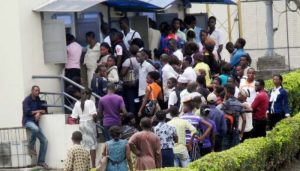
There shall be three (3) legislative weeks (arrival on Monday and departure on Friday) in a quarter during which parliamentarians and members of the Central Council of Elders shall meet. There should be separate Regional Constitutions fashioned to suit the living, cultural, and development aspirations of each region. The Regions shall have the right to establish sub-regional governing units (states, provinces, divisions, districts, and local governments) as may be deemed fit.
A New Governance Model for the United Regions of Nigeria.
A NEW GOVERNANCE MODEL FOR THE UNITED REGIONS OF NIGERIA:
CENTRAL ADMINISTRATION
The constitution shall specify only governance relationships between the federal and Regional Administrations. All power not expressly given to the federal government shall be reserved for the Regions. The Central Executive Council shall comprise eighteen ministers (three from each federating region). The existing Ministries shall be rationalized and reconfigured to fit into this template. Sub-Ministerial appointments shall be made from the ranks of the Civil Service for technical advice and support and avoid parallel bureaucracy in the form of ‘advisers or assistances’. Subsisting federal MDAs shall be rationalized in conformity with the legislative list of functions. Regions shall inherit associated assets and liabilities.
The Central constitution shall contain specific section on jurisdictions of the Federal Judiciary and the establishment and composition of the security service. Sections on Anti-Corruption Measures, Adjudication of Corruption and Betrayal of Trust Matters, Regional Territorial Administration, Basis of Regional Governments, Drafting and Enactment of Regional Constitutions, Equal Rights between Regions, Drafting, and Enactment of Regional Constitutions, Regional Border Changes, and Disputes shall be handled by the National Supreme Court.
National Security shall be the responsibility of the Central Government, including the protection and preservation of URN’s sovereignty, territorial integrity, defense, intelligence agencies, international cooperation, and diplomatic efforts to address global issues.
Each region shall be responsible for Public Security in their domain, including law enforcement efforts, prevention and management of criminal activities, civil disturbances, riots, cybercrimes, disasters, and natural disasters, emergency response teams, community engagement, and social interventions to ensure the safety and well-being of citizens.
Sections on Anti-Corruption Measures, Adjudication of Corruption and Betrayal of Trust Matters, Regional Territorial Administration, Basis of Regional Governments, Drafting and Enactment of Regional Constitutions, Equal Rights between Regions, Drafting, and Enactment of Regional Constitutions, Regional Border Changes, and Disputes shall be handled by the National Supreme Court.
Management of Resources and Revenue:
Regions shall be in full control of their resources. The central government shall have 20%, just as it did at independence. Regions shall work out the allocation formula between their state Governments as may be enshrined in their regional constitution.
REMUNERATIONS IN PUBLIC SERVICE: A single scale of salaries and allowances in the federal public service, set and periodically adjusted by the Central Parliament; Regions shall set their own salaries.
LEGISLATIVE LIST OF FUNCTIONS
EXCLUSIVE LIST
External defense: Navy, Army, and Air Forces. External Affairs. Immigration, Passports, and Visas
General Aviation Safety Regulations
Foreign Borrowings. National Banking regulations. Pensions, Gratuities, and other benefits payable out of the Consolidated Revenue Fund or any other public fund of the federation. The public debt of the Federation. Taxes and Duties on Revenue sources that are reserved for the Federal Government.
RESIDUAL LIST:
All powers not expressly delegated to the Federal Government by the Constitution are exclusively reserved for the Regions.
TRANSITIONAL PROVISIONS
The government should recognise that Nigeria is an amalgamation of regions of distinct cultures and aspirations and should now be so structured into six autonomous regions: Eastern Region, Middle Belt Region, Niger Delta Region, North East Region, North West Region, and Western Region or whatever name the people of the regions chose to call their region.
This administration should create, through the National Assembly, or if need be through an Executive Order, a National Rebirth Commission to organised a Regional and National referendum. The states should also, through its Legislative arm, create a State Referendum Commission to organize a referendum for ethnic group and peoples of current States to decide which region they wish to belong.
Each region should draft a suitable Constitution for its use. The regions should subscribe to an inviolable Article of the Federation that will establish and preserve autonomy and guarantee liberty, equality, equity, and justice for each region.
The Articles should consciously establish a weak central government, affording it specific powers (Exclusive power). Legislative lists shall be either exclusive or residual. Powers not granted to the Central government are reserved for the regions. That means there will not be any concurrent legislative lists. A new Constitution will be drafted and approved by the federating regions. Proclaim the establishment of a new United Regions of Nigeria, composed only of six autonomous regions.

The document prescribes action and process expected to be undertaken by the National Assembly (by way of codifying federal laws and enactment, undertaking modifications and amendments, and designing frameworks for equitable sharing of assets and liabilities among government entities) and the peoples of the Regions (‘inclusive of a formal Referendum’) all leading up to the ‘effective take-off of a newly reconfigured government at Federal and Regional levels on the effective date to be agreed upon; but not later than October 1, 2027.
The transition shall be in phases such that the full implementation of the new constitution for the United Regions of Nigeria could be on October 1, 2027, while the states (Province) could take off by May 29, 2025, and the regions by May 29, 2026.
SUPREME COUNCIL OF UNITED REGIONS OF NIGERIA (SCURN)
The highest authority in URN shall be the Supreme Council of the United Regions of Nigeria (SCURN). SCURN shall be made up of 150 members comprising the parliamentarians and members of Central Council of Elders.
Central Parliament and Central Council of Elders: The Central Parliament comprised of 18 (eighteen) elected members and Central Council of Elders (composed of seven Traditional Rulers and elder Statesmen) from each regions. They will receive remuneration and discipline solely through their constituencies and regions, as per provisions enacted by them. Members of the Central Executive Council will be remunerated by the Central Government, in accordance with the Federal Civil Service pay structure.
Central Parliamentarians: The executive and legislative branches of government shall be fused together to form the central Parliament.
The 18 (eighteen) elected members from each region shall elect Three (3) members to form the Central Executive Council. The other fifteen members shall serve as part-time legislators.
Central Parliament Speaker (CPS) and Deputy CPS: The Central Parliament will elect a member as the Central Parliament Speaker (CPS) and another as the Deputy CPS.
Role of the CPS: The CPS will serve as the head of the Central Parliament and preside over its sessions. The Speaker’s term will be two years, non-renewable, and will be succeeded by the Deputy Speaker. Rotation of CPS and DCPS: The CPS and DCPS positions will rotate among the Non-Executive Parliamentarians every two (2) years.

The principal function of the Parliament is the enactment of laws for Central matters.Legislative Calendar: There will be three (3) legislative weeks (Monday arrival and Friday departure) in a legislative year during which parliamentarians and members of the Central Council of Elders will convene.
CENTRAL EXECUTIVE COUNCIL (Cabinet members):
Central Executive Council (CEC) will operate a Collegiate Executive system with an all-inclusive structure in which all the six geo-political zones have equal representation and the executive power vested in the Council. The headship (Prime Minister) shall be rotated among the Executive Council members.
The elected parliamentarians shall choose from among them three parliamentarians to serve as member in an eighteen-man cabinet (three per region). The cabinet members shall elect the Prime Minister and Deputy Prime Minister. The Prime Minister is the head of the Central Executive Council. He or she serves a two-year un-renewable term and hands over to the Deputy Prime Minister.
The Speaker shall present the Prime Minister and Deputy Prime Minister to the President, who, as the ceremonial Head of Government, shall issue the staff of office to the Prime Minister and Deputy Prime Minister.
The Prime Minister is the Chief Executive, chairman of the Council of Ministers, and C-in-C of the Armed Forces. He shall submit for approval to the parliament for ministerial posts only names from among its members who `possess the requisite qualifications and experience. The Prime Minister shall form his or her Government by assigning portfolios to each of the eighteen-man cabinet (three per region) of the members of the Central Executive Council.
The Prime Minister shall present the nominated cabinet members and their proposed portfolios to the Central Parliament for approval. The Prime Minister may appoint not more than five (5) ex-officio members to assist him/her
All appointments shall be approved by the Supreme Council of the United Regions of Nigeria. Cabinet membership and portfolios are at the pleasure of the Prime Minister. A Region shall not be bound by any decision of the Council that is not supported by its Premier. The Central Executive Council shall make orders-in-council to create legally enforceable regulations and procedures for implementing the law.

Central Executive Council Accountability: Members of the Central Executive Council will be accountable to the Central Parliament and will serve as its members. The Prime Minister may, when there is an emergency and the Council is unable to take a decision act on behalf of the CEC. Such a decision must be ratified by the Council within thirty (30) days.
The CEC will have a single term of six years. Central Council of Elders (CCE) made up of seven members from each region. The CCE shall comprise of; Chairman of the regional council of Elders, (A traditional Ruler) two representatives of the religious bodies, and F our representatives of the Professional bodies: (Commerce, Law, Security, and Diplomacy)
SCURN shall serve un-renewable six-year tenure. SCURN shall meet at the beginning of every Parliamentary year, that is, every other year except for emergency meetings, which may be convened by one-third of SCURN members. The Central Executive Council shall be in charge of the Central Administration. It ensures that it is organised appropriately and that it fulfills its duties effectively.
The Central Administration is organised into Ministries and Departments. There shall be 12 Ministries, and each shall be headed by a member of the Central Executive Council. Departments and Agencies may be created by the Central Administration for ease of administration.
Inauguration of the Central Parliament:
The Chief Judge shall administer the oath of office to the SCURN members The Central Parliament shall meet to elect the Speaker and the Deputy Speaker. The Speaker shall serve a two-year un-renewable term and hand over to the Deputy Speaker. The Central Speakership position shall be rotated among the Regions every two (2) years. The Speaker serves as the head of the Central Parliament and presides over the Parliament. The Chairman of the Council of Elders (President) shall inaugurate the Prime Minister and the Speaker while the Chief Justice of the Federation shall administer the oath of office to them.
CENTRAL COUNCIL OF STATES (CCS)
The Central Council of States shall comprise the Central Executive Council and the Regional Premiers. The CCS is an advisory council to the Central Executive Council on the general duties of the CEC, including legislation and recommendations to the Central Parliament. CCS meets four times in a Legislative year.
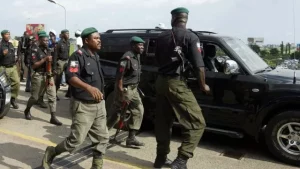
SCURN MEETINGS:
The Central Parliament meets once a quarter during the legislative week. The SCURN shall meet twice a year. An emergency meeting of the Supreme Council of United Nigeria may be summoned by one-third of SCURN members.
An emergency meeting of the Central Executive Council, Central Parliament, and Central Council of Elders may be summoned by one-third of the members of the Council. Each region shall be responsible for the logistic support of their parliamentarians at legislative meetings. The central Government shall be responsible for accommodation only.
All Positions are region specific. If by reason of death, incapacitation or impeachment of an officer, such vacant position shall be filled by another member for from the same region.
President: There shall be elected a member of the Council of Elders (a traditional ruler) as the President and a Vice President. The President shall serve as the ceremonial Head of Government; The President and Vice President shall serve for a two-year unrenewable term.
The Vice President succeeds the President while a new Vice President shall be elected. The position of President and Vice President shall be rotated among the Regions every two (2) years. The opening and closing of the Central Parliament shall be by proclamation of the President.
The President shall give the staff of office to the elected Prime Minister and invite him /her to form the cabinet. At the end of the Prime Minister’s tenure or when removed from office, the President shall invite the Prime Minister to dissolve the cabinet and return the Staff of office. The President shall give royal assent to bills (primary legislation) passed at the Parliament.
Abuja:
Abuja shall serve as the capital city for United Regions of Nigeria. The Prime Minister shall appoint from the cabinet members a Mayor who will serve as the Minister and head of Abuja mayority. The Mayor of Abuja shall not be from the same region as the President, Prime Minister or Central Parliament Speaker.
WESTERN REGION ADMINISTRATION:
This section is specifically for a new governance structure for Western Nigeria, a reversal to the regional, provincial, or district structure is recommended . Rotational Premiership among the Provincial Administrators every two years
Headship
– Region: Premier, – Province (State): Administrator and – District (Local Government): Mayor .All elections are to be conducted by the region – Every two years, one of the elected Provincial Administrators will be elected by the Regional Executive Council (REC) as Premier (of the Western Region).
– The REC also elects the 1st (First) and 2nd (Second) Deputy Premiers. The 1st Deputy Premier steps in as the Premier, while the 2nd Deputy Premier becomes the 1st Deputy Premier, and a new 2nd Deputy Premier is elected every other year. – The Premier is primus inter pares and does not have any power above and beyond that of the other cabinet members.
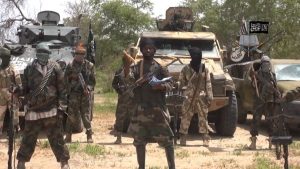
– The Premier may, where there is an emergency and the council is unable to take a decision, act on behalf of the REC. Such action must be ratified by the Council within 30 (thirty) days. – Parliamentary and Legislative functions are part-time, with only sitting allowances.
Regional Parliament:
Speakers and deputy speakers of the parliament of the Provinces shall constitute and Regional Council of Elders the Regional Parliament (RP). RP shall elect a member as the Regional Speaker and Deputy Speaker for a term of 2 years. The regional Speakership position shall be rotated among the speakers of the provinces every two (2) years
Regional Council of Elders (RCE)
The Chairman of the Council of Elders of the Provinces shall be a member of the Regional Council of Elders (RCE) .The RCE shall elect one of the Traditional Rulers as the Chairman of the Regional Council of Elders, Three members shall represent the religious leaders in the RCE .There shall be nominated two members to represent chartered Professional /Trade Associations from each Province of the Region
The RCE shall have:
Responsibility for all traditional and religious matters in the Region. Issues relating to traditional and religious matters may not be passed into law unless with the concurrence of the RCE; Advisory role on all other issues.
Each Province shall elect an Administrator (Governor)
The administrator has six-year non-renewable tenure. The administrator shall constitute an Executive Council of not more than 10 (Ten) Commissioners and not more than 5 (five) Assistants .The assistants may attend the Executive Council Meetings of the Province but may not vote on any issue.
The Executive Council Members shall be approved by the Parliament of the Province. Executive Council members hold office at the pleasure of the Administrator. The Parliament of a Province shall include elected members of the parliament and the Council of Elders of the Province:
The Parliament of a Province:
Composition: members of the Provincial Parliament shall include an elected member from each District who shall serve for a renewable term of four years. The Parliament shall elect its officers, including the Speaker. Only elected members of the Parliament of a Province can be elected as officers. The speaker shall also serve in the Regional Parliament. Mayors from the districts shall be members of the PP
Provincial Council of Elders (PCE)
The Chairman of the District of Traditional Rulers shall be a member of the Provincial Council of Elders (PCE). The PCE shall elect one of the Traditional Rulers as the Ceremonial Governor .Three members from each District shall represent the religious leaders in the PCE There shall be nominated Five ex-officio members
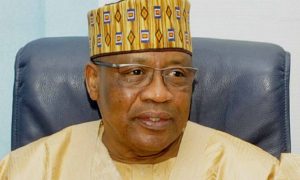
The PCE shall have:
Responsibility for all traditional and religious matters in the region Issues relating to traditional and religious matters may not be passed into law unless with the concurrence of the PCE; Advisory role on all other issues.
District.
Each ward shall elect a councilor. A councilor has a renewable term of Six years. One of the Councilors shall be elected mayor and another deputy mayor. The position of mayor shall be rotated among the councilors every two years. Mayor and Deputy Mayor shall serve an un-renewable term of two years .A Mayor shall serve as a member of the Provincial Parliament
The Mayor shall:
Appoint cabinet members from the elected Council members and not more than five ex-officio members. Allot portfolios to the elected Council Members and ex-officio members appointed to supervise specific departments. All appointments shall be approved by the Council. Cabinet membership and portfolios are at the pleasure of the Mayor.
District Council of Elders (DCE):
A traditional ruler shall represent each ward. Three religious leaders shall be members of the DCE. The DCE shall elect a traditional ruler as their chairman. The Chairman of the DCE may serve a rotational term of two years. The Chairman DCE will represent the District at the Council of Elders of the Province.
General:
There shall be no federal electoral body (INEC) or federal census, ‘as each region will manage her citizens’. The region shall establish a regional supreme court and other tiers of courts.
The composition of the armed and security forces of the federation (officers and other ranks) shall be guided by regional territorial configuration. Other ranks and services in a territory shall be exclusively composed of citizens of that territory, while the officer corps, for reasons of technical specialty and operational cohesion, shall admit up to 10% of citizens from other regions, provided that the Head of the Regional Command shall be an indigene of the Region. The headship of the Federal Armed Forces/Security Services shall be rotated among the Regions.
There shall be exit clauses in federal and regional constitutions enabling nationalities to exit, and sub-ethnic nationalities could switch between regions after a defined due process. Technical Panels’ recommended drafting Regional and Federal Constitutions, based on the result of activities undertaken in section 3 above
The derivative revenue sharing formula shall be 80% and 20% for the central and Regional governments, respectively. For Western Nigeria, the 80% shall be shared between the District (Local government), the province (state), and the region at 30%, 25%, and 25%, respectively.
Deacon Owolabi Oladejo is the President/Founder Metropolitan Broadcasting Service with headquarters in Ibadan, Oyo State Capital
FOOTNOTE: You want to share story with us? You want to advertise with us? You need publicity for product, or service, or event? Contact us on WhatsApp +2348073463653 or email [email protected]

